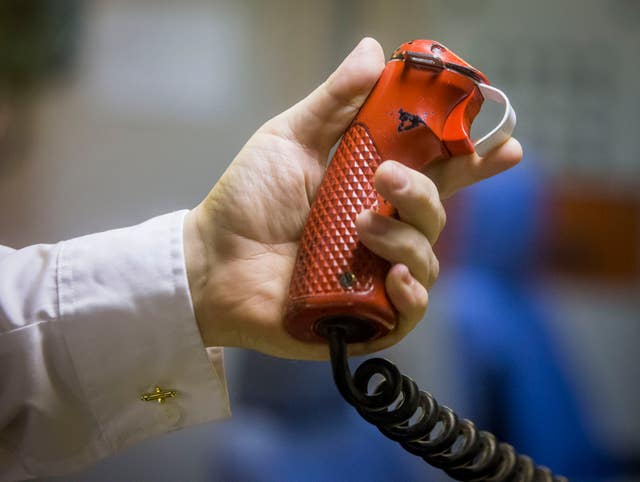Dominic Raab has power to lead on military decisions in PM’s absence – No 10
The Foreign Secretary would chair the National Security Council if required, Downing Street has confirmed.

Dominic Raab and the Cabinet would have the power to order military action while the Prime Minister is in intensive care, Downing Street has confirmed.
Boris Johnson asked the Foreign Secretary, as part of his role as First Secretary of State, to stand in for him after his coronavirus symptoms worsened on Monday afternoon.
The 55-year-old has not been put on a ventilator but has received oxygen since being admitted to St Thomas’ hospital in central London on Sunday evening.
The Prime Minister’s official spokesman confirmed that, as well as leading the Government’s daily coronavirus “war cabinet” sessions, Mr Raab would also chair any necessary meetings of the National Security Council in Mr Johnson’s stead.
The PM usually chairs security council meetings on a weekly basis but none is scheduled during the parliamentary recess, said Number 10.
Mr Johnson’s spokesman confirmed that his letters of last resort, the sealed final instructions to the commanders of Britain’s Trident nuclear deterrent detailing what to do in the event of an attack on the nation, would remain in place during his time in hospital.
“The Prime Minister remains the Prime Minister,” said the No 10 spokesman, when asked about the letters at the Downing Street morning press briefing.
The PM’s spokesman told reporters on Tuesday: “In relation to national security matters, the First Secretary of State and the Cabinet have the authority and ability to respond in the Prime Minister’s absence.

“The UK has a robust national security architecture, including the National Security Council, which is designated to be resilient and able to operate effectively under different circumstances.”
Britain’s defence chief had earlier insisted it would be “business as usual” amid concerns over who had the authority to take major decisions in the Conservative Party leader’s absence.
Tory MP Tobias Ellwood, chairman of the Commons defence committee, was among those seeking information as he wrote on Twitter: “It is important to have 100% clarity as to where responsibility for UK national security decisions now lies.
“We must anticipate adversaries attempting to exploit any perceived weakness.”
General Sir Nick Carter, chief of the defence staff, said he believed there was a “very clear” chain of command given the National Security Council, containing senior Cabinet ministers, is “wrapped around” the PM.
Pressed on BBC Radio 4’s Today programme about the armed forces would do if there was civil unrest in the country, Sir Nick replied: “I think it’s most unlikely that we would get involved in public order at all.
“Generally speaking our role in this is to back-fill the police in those roles that don’t face the public so the police force are able to manage public order on the country’s behalf.”
Downing Street said Mr Raab was working from the Foreign Office but is being assisted by officials from “across Government” as he co-ordinates the coronavirus response.
A spokesman confirmed that, should Mr Raab be forced to self-isolate or take ill, Chancellor Rishi Sunak would be next in line to take over, according to the order of precedence set by the PM.





